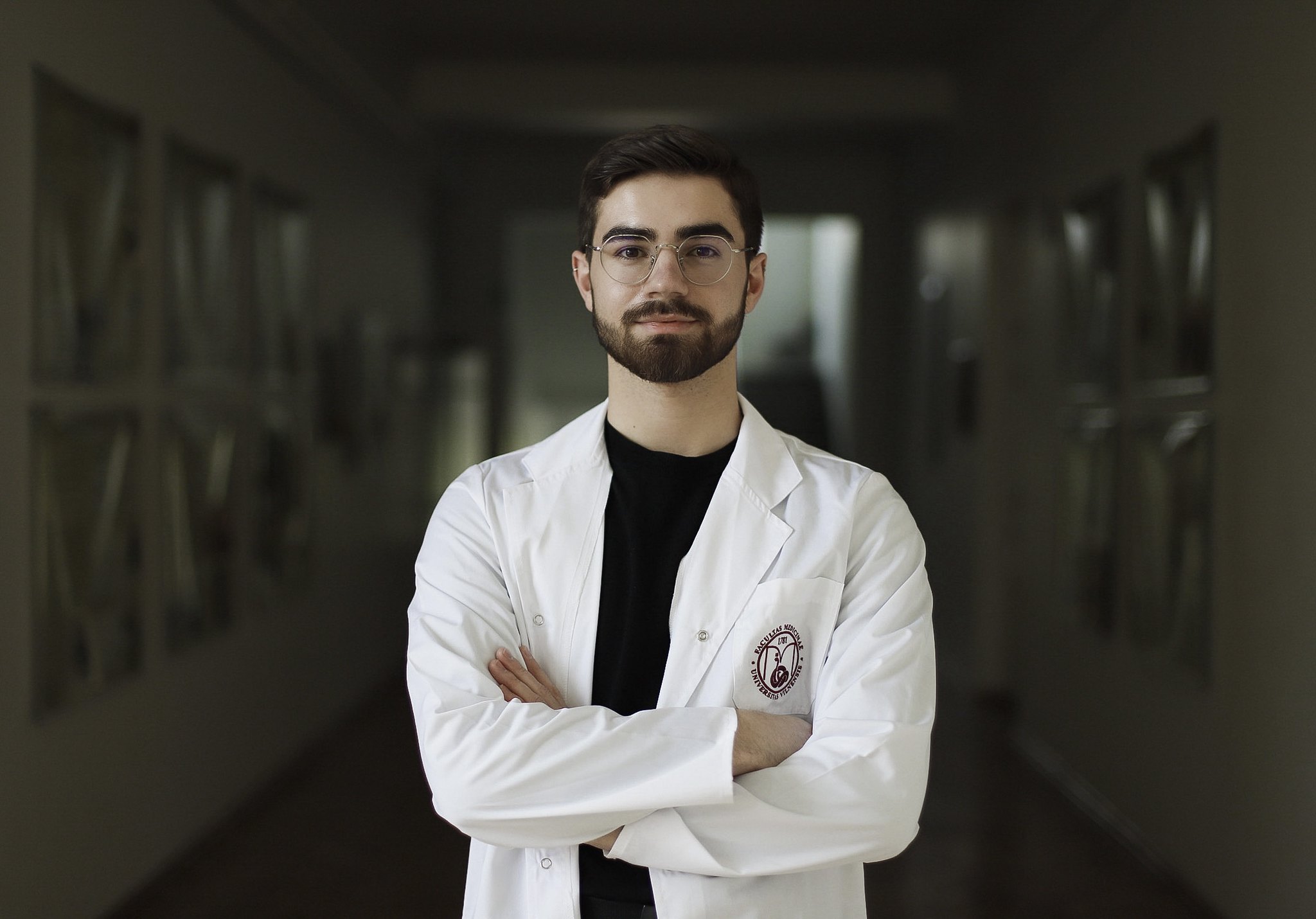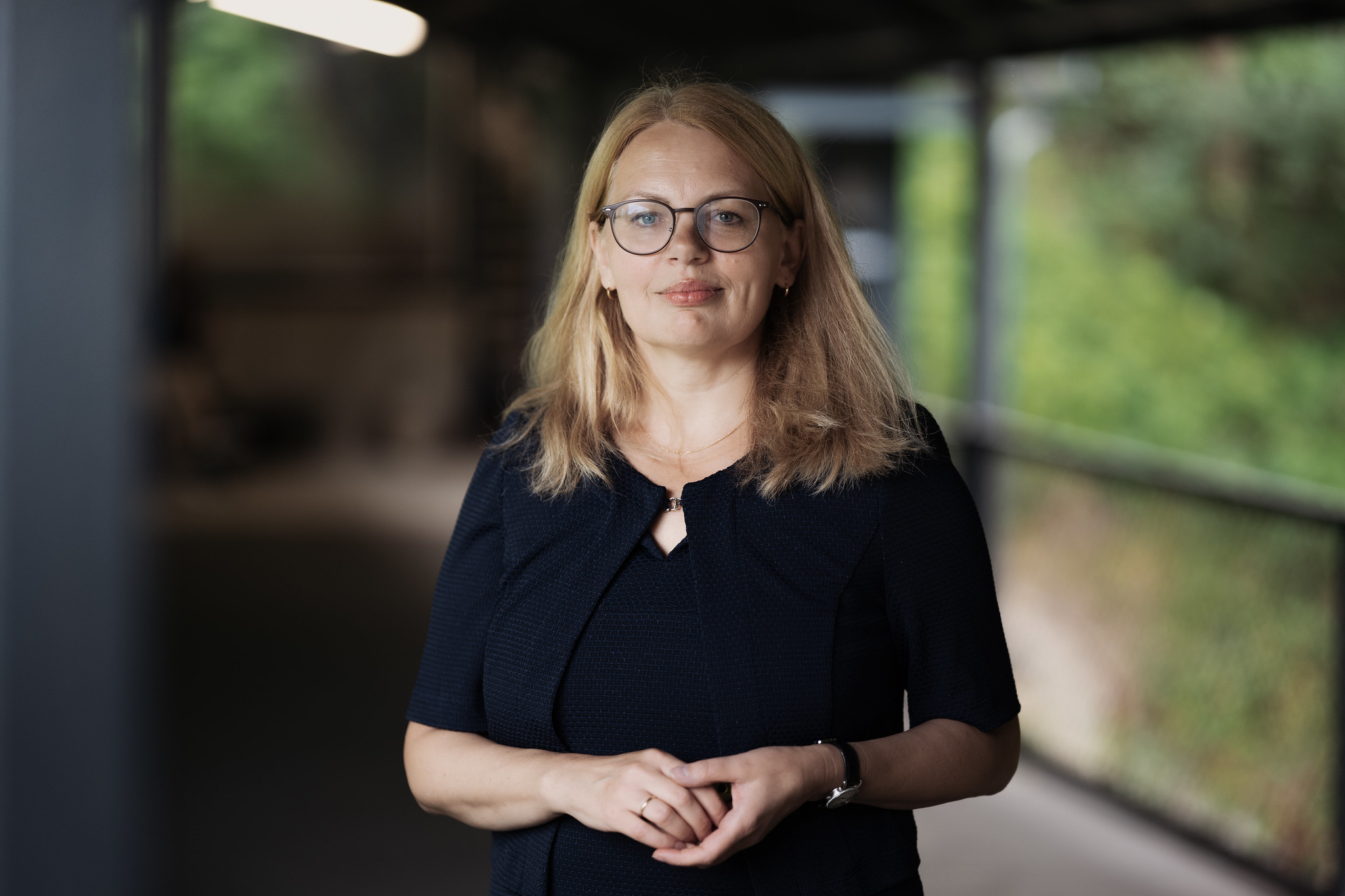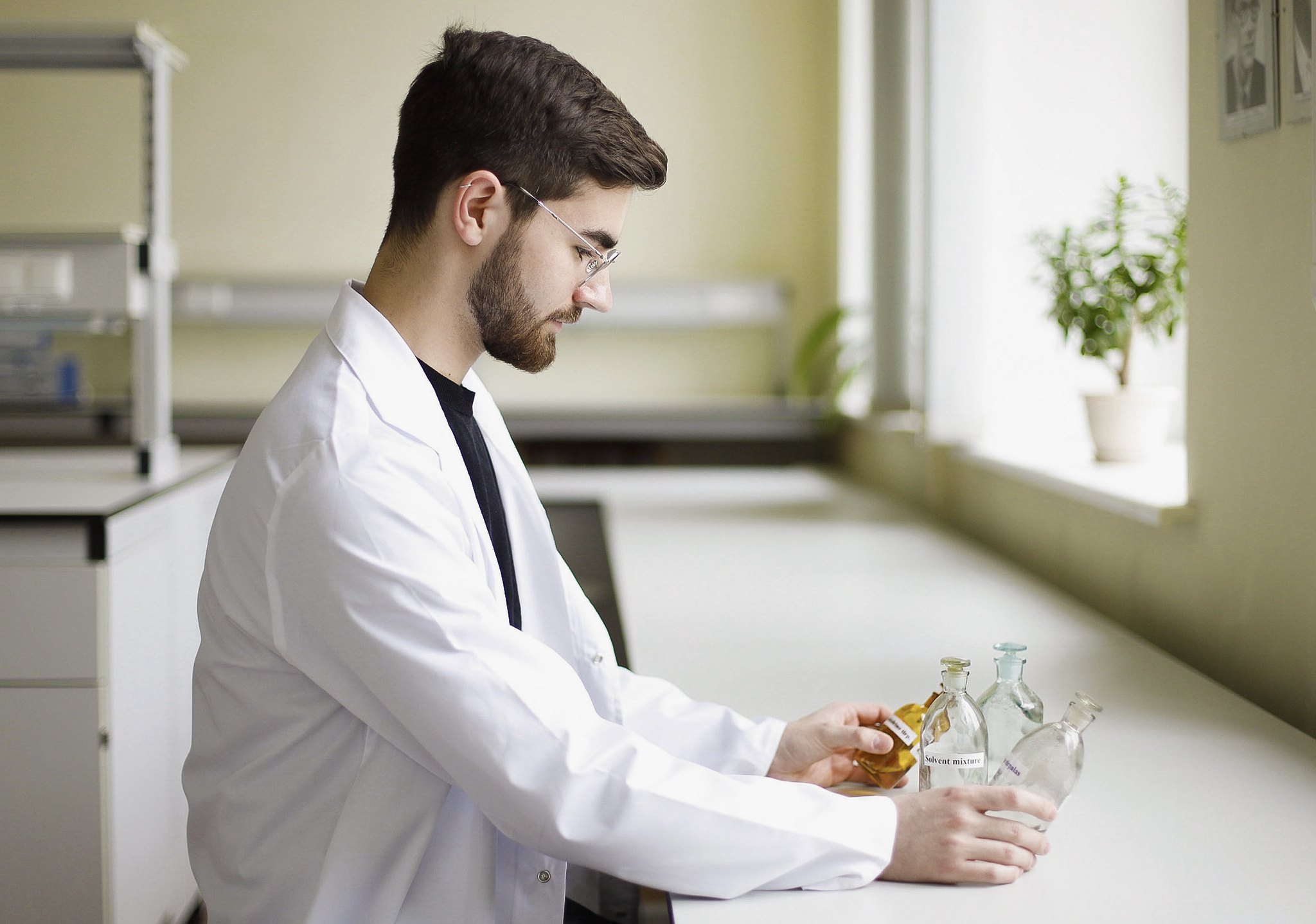 Gabrielius Leščinskas / MF archive
Gabrielius Leščinskas / MF archive
"For many who complete pharmacy studies, community pharmacies are often the initial 'stop.' Some stay longer, others shorter. Meanwhile, the role of a hospital pharmacist is somewhat different; they take on a teaching role within the hospital environment since pharmacists are drug experts," says Gabrielius Leščinskas, a pharmacy student at the Faculty of Medicine, Vilnius University (VU). Fourth-year student Gabrielius Leščinskas and Associate Professor Dr. Kristina Garuolienė of the Pharmacy and Pharmacology Center discuss what the pharmacist profession is truly like and whether the path of a community or hospital pharmacist is worth pursuing in Lithuania.
A Dynamic Job Requiring Critical Thinking
Although at first glance it may seem that work in a community pharmacy and a hospital pharmacy is the same, VU pharmacy student Gabrielius Leščinskas refutes this myth: "It's hard to single out one aspect, as these are two different work specifics with some commonalities. Community pharmacists are responsible for dispensing medicinal products, providing pharmaceutical services, and, if necessary, selecting the most appropriate medication according to their knowledge and legal requirements. They also inform the public about the rational use of medicines, measure and evaluate physiological parameters of residents, oversee pharmacy technicians, and more."
According to G. Leščinskas, the duties of a hospital pharmacist are more complex: ensuring the supply of medicines to the hospital’s departments and units, compounding medications according to special orders, informing doctors about drugs, supplying them to patients, conducting research and analyses, providing dosing recommendations to doctors based on the results, and consulting on the most suitable treatment for individual patients.
"Therefore, a hospital pharmacist is not just a drug dispenser but also a consultant for patients, doctors, and nurses on issues related to drug use and administration, monitoring the effectiveness and safety of drugs, and participating in clinical trials. Compared to work in a community pharmacy, the depth of knowledge and skills here is indeed different. Not only is knowledge about medications required, but also impeccable teamwork," explained the student.
The student adds that in foreign countries, such as the United Kingdom, there are hospital pharmacists who can prescribe prescription medications to patients, discharge them from healthcare institutions, and collaborate with other health professionals in interdisciplinary teams: "I would dare to say that the path of a hospital pharmacist is indeed unconventional. It’s a dynamic job requiring critical thinking. It’s worth mentioning that the demand for hospital pharmacists will grow in the future. This is because hospital pharmacists can greatly help reduce adverse drug effects, medication errors, and thus improve patient health and quality of life," says G. Leščinskas.
 Assoc. Prof. Kristina Garuolienė / VU archive
Assoc. Prof. Kristina Garuolienė / VU archive
Clinical Pharmacist – An Important Specialist in Hospitals
"A hospital pharmacist, also known as a clinical pharmacist, is not a new specialization. In many European Union countries, a hospital pharmacist is a very important hospital specialist, without whom it would not be possible to ensure drug safety and quality medication therapy," said Dr. Kristina Garuolienė, Associate Professor at the Institute of Biomedical Sciences, Faculty of Medicine, VU.
According to the scientist, hospital pharmacists provide patients with the necessary medications for their treatment, are responsible for the storage and preparation of medications for individual patients, and also consult patients on how to properly use medications. They collaborate with healthcare specialist teams, advise on drug selection, dosing, and monitoring, aiming to optimize each patient’s treatment.
"In many EU countries, hospital pharmacists consult patients with chronic diseases (diabetes, hypertension, asthma, etc.) on the proper use of medications, potential adverse side effects, and drug interactions, thereby encouraging patients to actively participate in managing their disease. The role of hospital pharmacists is especially important in the care of patients with multiple chronic conditions and those taking numerous medications, ensuring that patients receive safe and effective drug therapy tailored to their specific needs. Hospital pharmacists also participate in clinical trials and initiatives aimed at improving hospital services, reducing prescription errors, and enhancing patient treatment outcomes," explained the associate professor.
According to the scientist, the functions of hospital pharmacists in Lithuania are likely to expand in the future. "Pharmacists are important members of healthcare teams, playing a crucial role in optimizing medication therapy and implementing patient-centered healthcare in Lithuania," said Dr. Kristina Garuolienė.
 Gabrielius Leščinskas / MF archive
Gabrielius Leščinskas / MF archive
Various Perspectives After Studies
Talking about the work of a clinical pharmacist, G. Leščinskas notes that hospital pharmacy in Lithuania is currently an aspiration: "Although legal aspects are more or less regulated, the prevailing situation in Lithuania does not yet reflect the true practice that exists in many other European countries, such as Ireland, the United Kingdom, the Netherlands, and others. Of course, issues are present not only in Lithuania but also in other Central and Eastern European countries – Estonia, Latvia, Germany, Austria, Hungary, etc. Therefore, it must be acknowledged that community pharmacy is the initial stop for many who complete pharmacy studies. Some stay there longer, others shorter."
However, the field of career choices after completing pharmacy studies is much broader than it might seem at first glance. According to the student, already during studies, one can start exploring the job market, do internships in both manufacturing and community pharmacies, and try their hand in pharmaceutical companies, whose activities are indeed dynamic.
"Prospects are really varied – you can realize yourself in wholesale drug trading and manufacturing companies, work in state institutions, continue scientific activities in universities and research institutions, or go abroad and make Lithuania’s name famous. There’s definitely a lot to choose from," said the pharmacy student.
Now a fourth-year student, G. Leščinskas recalls that his decision to choose pharmacy studies was well thought out. "I remember that inner conversation with myself very well, which I had sitting in front of a blank sheet of paper. On one side of it, I had written 'I choose to study Scandinavian studies because...' and on the other 'I choose to study pharmacy because...'. Pharmacy 'won,' scoring more pluses," the student recalled.
According to the student, one of the main advantages is that pharmacy studies and the profession have stability and demand: "Over five years of studies, you can acquire a lot of useful knowledge not only about chemical compounds, their synthesis, and the effects of compounds on the body but also understand how the human body works, what causes diseases, how those diseases are treated, what diagnostic methods are used for various diseases. Laboratory work is also very interesting and allows you to understand whether you want to try yourself as a scientist. Therefore, pharmacy is a multi-layered direction with stability and demand, constantly growing, and there will always be a need for good specialists."
After studies, G. Leščinskas plans to get to know the specifics of the community pharmacist's work better, and later – to continue studies and pursue a doctoral degree. "Of course, if the opportunity arises, I would gladly try the work of a hospital pharmacist, which seems more interesting and requires more competencies. I am pleased that in the future, I will be able to use the accumulated knowledge and experience purposefully, contributing to improving people's well-being, health, and educating society about drug use," said the student.
